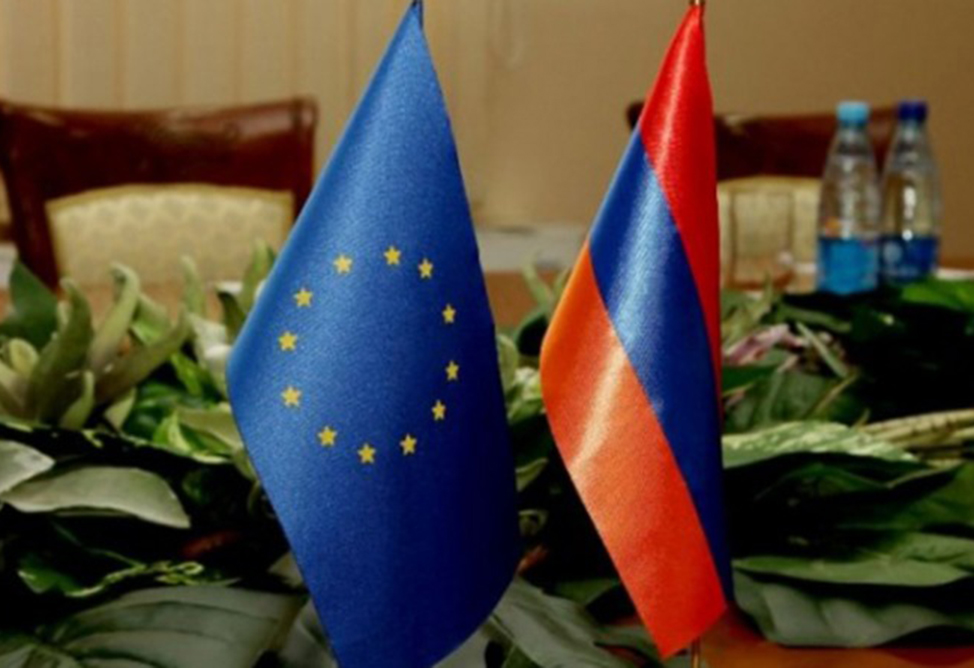Armenian president: OSCE Minsk group only mediator in Karabakh konflict settlement
27.10.2008,
22:44
OSCE Minsk Group is the only mediator in Karabakh Konflict settlement, there are no other mediators, Armenian President Serzh Sargsyan said in an interview with Armenian Public Television.
YEREVAN, October 27. /ARKA/. OSCE Minsk Group is the only mediator in Karabakh Konflict settlement, there are no other mediators, Armenian President Serzh Sargsyan said in an interview with Armenian Public Television.
He said that Armenia has never asked any country to carry out a mission.
The head of state said the OSCE-brokered talks are based on Madrid principles and “attempts to create a mess can’t contribute to the peace process”.
The Armenian leader also said that Russia is one of the Minsk Group’s co-chair states and “President, Dmitry Medvedev’s invitation and his interest in this issue are very natural”.
“What for comments on Abdullah Gul’s statement, I should first of all say that I am not in the habit of commenting other politicians’ statements, especially if our press publishes fragments taken out of the context”, presidential press office quoted Sargsyan as saying in his televised interview.
The president repeated that the only mediator is OSCE Minsk Group, but expressed willingness to accept also other efforts to settle the conflict.
“Yes, I am convinced that Turkey can contribute to the settlement of Karabakh conflict and think it is contributing right now – President Gul’s visit to Yerevan and continuation of Armenian-Turkish talks set a good example of solutions to major problems”, he said.
The Turkish leader visited Yerevan on September 6 at his Armenian counterpart Serzh Sargsyan’s invitation to attend a 2010 World Cup qualifier between Armenian and Turkish nationals.
After that, information about the Armenian president’s alleged proposal to Turkey to mediate the conflict settlement emerged in Turkish and Azerbaijani newspapers.
In his televised interview, Sargsyan also expressed confidence that “if Turkey opens the border and establish diplomatic ties with Armenia, this will contribute a great deal to settlement of Karabakh conflict”.
There are no diplomatic relations between Armenia and Turkey and the state border has been closed since 1993 on Ankara’s initiative.
Turkey has set a number of pre-conditions for improving bilateral relations, namely, Armenia’s abandoning the policy of international recognition of the Armenian Genocide and recognizing Turkey’s present-day borders.
Karabakh conflict broke out in 1988 when Artsakh, mainly populated by Armenians, declared its independence from Azerbaijan.
On December 10, 1991, a few days after the collapse of the Soviet Union, a referendum took place in Nagorno-Karabakh, and the majority of the population (99.89%) voted for secession from Azerbaijan.
Afterwards, large-scale military operations began. As a result, Azerbaijan lost control over Nagorno-Karabakh and the seven regions adjacent to it.
On May 12, 1994 Bishkek cease-fire agreement, put an end to the military operations.
Since 1992, negotiations over the peaceful settlement of the conflict have been carried out under the OSCE Minsk Group’s mediation. The group is co-chaired by USA, Russia and France.-0-
He said that Armenia has never asked any country to carry out a mission.
The head of state said the OSCE-brokered talks are based on Madrid principles and “attempts to create a mess can’t contribute to the peace process”.
The Armenian leader also said that Russia is one of the Minsk Group’s co-chair states and “President, Dmitry Medvedev’s invitation and his interest in this issue are very natural”.
“What for comments on Abdullah Gul’s statement, I should first of all say that I am not in the habit of commenting other politicians’ statements, especially if our press publishes fragments taken out of the context”, presidential press office quoted Sargsyan as saying in his televised interview.
The president repeated that the only mediator is OSCE Minsk Group, but expressed willingness to accept also other efforts to settle the conflict.
“Yes, I am convinced that Turkey can contribute to the settlement of Karabakh conflict and think it is contributing right now – President Gul’s visit to Yerevan and continuation of Armenian-Turkish talks set a good example of solutions to major problems”, he said.
The Turkish leader visited Yerevan on September 6 at his Armenian counterpart Serzh Sargsyan’s invitation to attend a 2010 World Cup qualifier between Armenian and Turkish nationals.
After that, information about the Armenian president’s alleged proposal to Turkey to mediate the conflict settlement emerged in Turkish and Azerbaijani newspapers.
In his televised interview, Sargsyan also expressed confidence that “if Turkey opens the border and establish diplomatic ties with Armenia, this will contribute a great deal to settlement of Karabakh conflict”.
There are no diplomatic relations between Armenia and Turkey and the state border has been closed since 1993 on Ankara’s initiative.
Turkey has set a number of pre-conditions for improving bilateral relations, namely, Armenia’s abandoning the policy of international recognition of the Armenian Genocide and recognizing Turkey’s present-day borders.
Karabakh conflict broke out in 1988 when Artsakh, mainly populated by Armenians, declared its independence from Azerbaijan.
On December 10, 1991, a few days after the collapse of the Soviet Union, a referendum took place in Nagorno-Karabakh, and the majority of the population (99.89%) voted for secession from Azerbaijan.
Afterwards, large-scale military operations began. As a result, Azerbaijan lost control over Nagorno-Karabakh and the seven regions adjacent to it.
On May 12, 1994 Bishkek cease-fire agreement, put an end to the military operations.
Since 1992, negotiations over the peaceful settlement of the conflict have been carried out under the OSCE Minsk Group’s mediation. The group is co-chaired by USA, Russia and France.-0-



